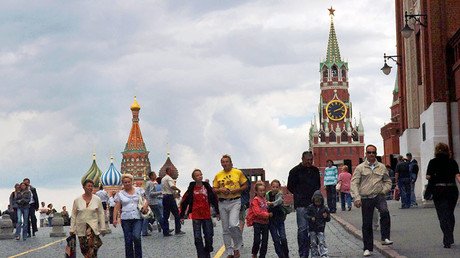Russia, Europe must cooperate or will waste their future - Romano Prodi to RT
Russia and Europe must find a way to overcome their differences and return to the long-term goal of cooperation - the only viable strategic path for both, Romano Prodi, former Italian prime minister and ex-president of the European Commission, told RT.
RT: As we speak right now EU leaders are readying to pitch their refugee deal to Turkey. Do you think Brussels will get a good deal for Europe?
Romano Prodi: There has to be a deal. When you have such a huge humanitarian tragedy you are obliged to find a deal. Whether it would be satisfactory or not we shall see in the details. But at least now we can alleviate the suffering of migrants, and in order to do that we have to be disposed to pay even a high price. This is what they think.
RT: Speaking of high prices. Indeed EU popularity has taken a big hit over the migrant crisis. How strong is the anti-Brussels sentiment and potentially the willingness of some countries to leave the European neighborhood?
RP: The migrant problem is totally different from other problems. The other problems mainly concern the government. This is concerning people and changing the political geography of the European countries. So you don’t have to be surprised that you have such deep reactions. Now the identity of people is on the take. The process is different from the Greek case where the problem was money. Here it is a problem of identity and avoiding a humanitarian disaster. It’s a problem that is difficult to solve, but despite that the solution will come. A compromise, as it always happens.
RT: How about Russia and its partnership with the European states. Europe’s relations with Russia have soured, sanctions remain in place even though the Ukraine peace deal is mostly holding. Why are sanctions being maintained against Russia?
RP: Don’t ask me. It was always my open opinion that the sanctions were damaging both of us. But the Ukrainian problem has created so much tension inside Europe, many splits between European countries. My opinion is that it will be difficult to end them quickly, but that we mast start [the process] in order to have the possibility to end the sanctions in the middle of the year, before summer. But it’s not easy because on one side you have Italy, Hungary and some other countries that share this opinion. On the other side you have the negative opinion of the Baltic countries, of Poland.
I think that we need strong German mediation in this field to find a necessary compromise. To put an end to the sanctions by with a general agreement and with an active positive action vis-à-vis Ukraine. We need certainly a joint Russia and Europe. And we need also to relieve the difficult humanitarian situation of the Ukrainian people. If we don’t show some active action, the tension will prevail.
READ MORE: Italy and Hungary against automatic renewal of anti-Russian sanctions
RT: Today EU foreign policy chief Federica Mogherini called on all UN members to join sanctions against Russia. You say even the EU is split about them so do you think many of the UN members would join them?
RP: In Europe you must have a common will. We have different starting points and then the common will is prevailing to have a joint answer. Outside the European Union there will be a different array of opinions; I think we shall have very diverging opinions about that. I told you my personal view that sanctions are not a useful instrument to bring peace in Ukraine, but it is not shared by everybody. Ms. Mogherini was obliged to express the prevailing decision of the European countries.
RT: Let’s talk about the story of Crimea. It’s exactly two years since Crimea rejoined Russia. Do you feel any change in sentiment among the EU members over the last two years?
RP: Everything depends upon some settlement in Ukraine. You cannot divide the Crimean problem from the Ukrainian solution. A long as there is tension in Ukraine, it would not be possible to have any settlement on the Crimean problem. The problem will remain open. There are so many aspects, so many tensions that in theory have no connection to each other, but then you find that the Middle East, Crimea and Ukraine are linked together. A general appeasement is needed. I think that in the Middle East a step forward has been done even if interpretations differ on the Russian [involvement]. I do expect that it gives us at least a truce in order to tackle the problem of Ukraine and Crimea.
RT: You were prime minister of Italy from 2006 to 2008. How do you assess the country’s relations with Russia and the Russia-EU relations in general?
RP: I will tell you frankly. When I was president of the European Commission and prime minister of Italy, the relations with Russia were much-much better than now. I think that it’s our necessity and convenience both for Russia and the European Union to go back to this moment of cooperation. I remember that in 2003 we signed a strategy for future cooperation. And step-by-step it melted down, and with the Ukrainian case this was chanced by the increasing tension. Simply we have to go back to the long-term necessity of cooperation between Russia and Europe. Europe needs Russia for energy and a lot of other issues. Russia needs Europe for modernizing and transforming the country. The dimension today, the globalization need it [sic]. It’s no longer an option. And if we don’t do that, we waste our future.













